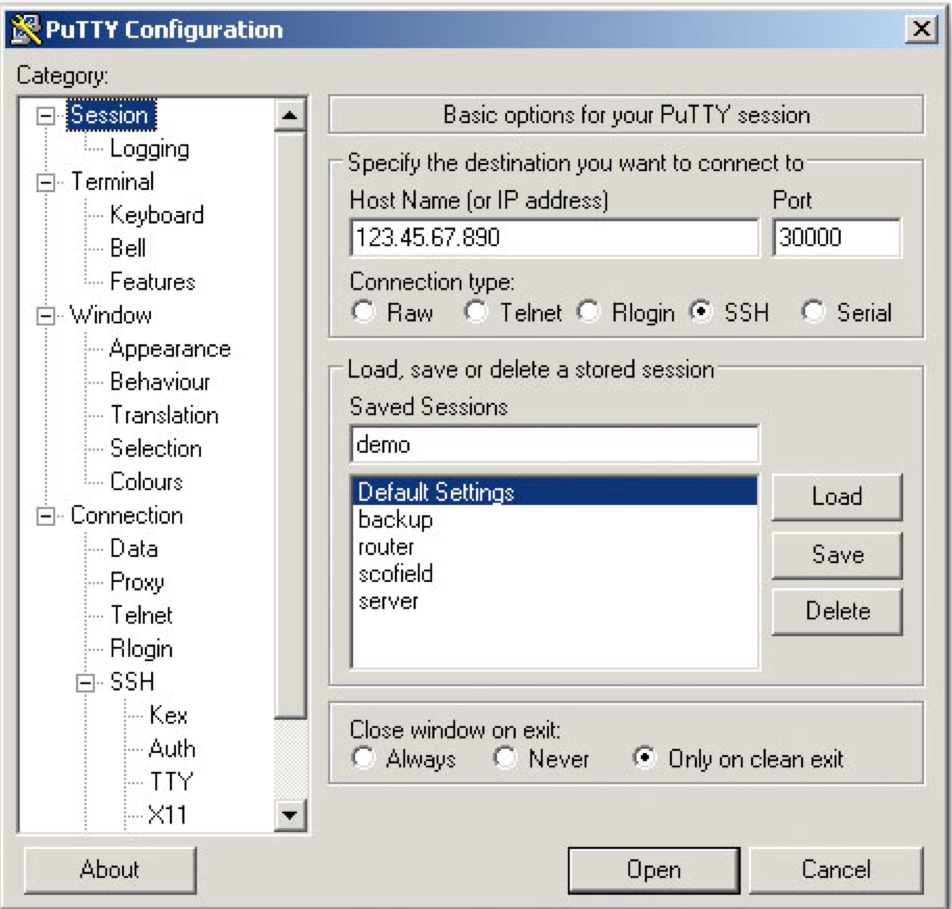

Your identification has been saved in /Users/emmap1/.ssh/id_rsa.

The whole interaction will look similar to the following:Įnter file in which to save the key (/Users/emmap1/.ssh/id_rsa): The command creates your default identity with its public and private keys. For example, to create a key called my-new-ssh-key, enter a path like the one shown at the prompt:Įnter file in which to save the key (/Users/emmap1/.ssh/id_rsa): /Users/emmap1/.ssh/my-new-ssh-key
#Openssh generate key full
To create a key with a name or path other than the default, specify the full path to the key. We recommend you keep the default key name unless you have a reason to change it. $ ssh -T command message tells you which of your Bitbucket accounts can log in with that key. Return to the command line and verify your configuration and username by entering the following command:

Paste the copied public key into the SSH Key field.īitbucket sends you an email to confirm the addition of the key. It doesn't matter whether or not you include the email address.Įnter a Label for your new key, for example, Default public key. You may see an email address on the last line. ssh/id_rsa.pub file (or whatever you named the public key file) and copy its contents. If you've already added keys, you'll see them on this page. Add the public key to your Account settingsįrom Bitbucket, choose Personal settings from your avatar in the lower left.Ĭlick SSH keys.
#Openssh generate key password
If you don't want to type your password each time you use the key, you'll need to add it to the ssh-agent.Įnter ssh-add followed by the path to the private key file: The command displays two files, one for the public key (for example id_rsa.pub) and one for the private key (for example, id_rsa).

You should see something like the following: Your public key has been saved in /c/Users/emmap1/.ssh/id_rsa.pub. Your identification has been saved in /c/Users/emmap1/.ssh/id_rsa. The whole interaction looks similar to this:Įnter file in which to save the key (/c/Users/emmap1/.ssh/id_rsa):Ĭreated directory '/c/Users/emmap1/.ssh'.Įnter passphrase (empty for no passphrase): Enter and re-enter a passphrase when prompted.
#Openssh generate key windows
For example, to create a key called my-new-ssh-key, enter the Windows path, shown here:Įnter file in which to save the key (/c/Users/emmap1/.ssh/id_rsa): c:\Users\emmap1\.ssh\my-new-ssh-keyģ. To create a key with a non-default name or path, specify the full path to the key. The receipt is almost the same as for generating your own keys, except that you should use an empty passphrase.We recommend keeping the default key name unless you have a reason to change it. All keys are generated by ssh-keygen, that one should be available on your system with the ssh package. OpenSSH require different keys depending if you use SSH1 and/or SSH2 protocol. But it may be useful to be able generate new server keys from time to time, this happen to me when I duplicate Virtual Private Server which contains an installed ssh package. This is an unusual topic since most distribution create these keys for you during the installation of the OpenSSH server package.


 0 kommentar(er)
0 kommentar(er)
